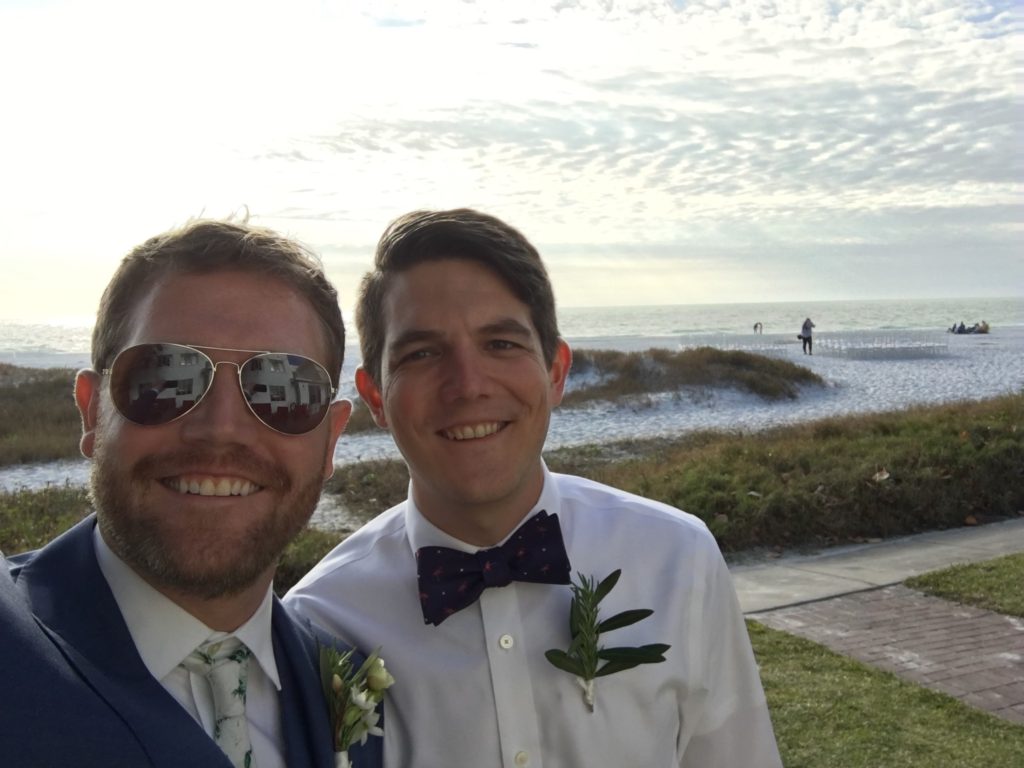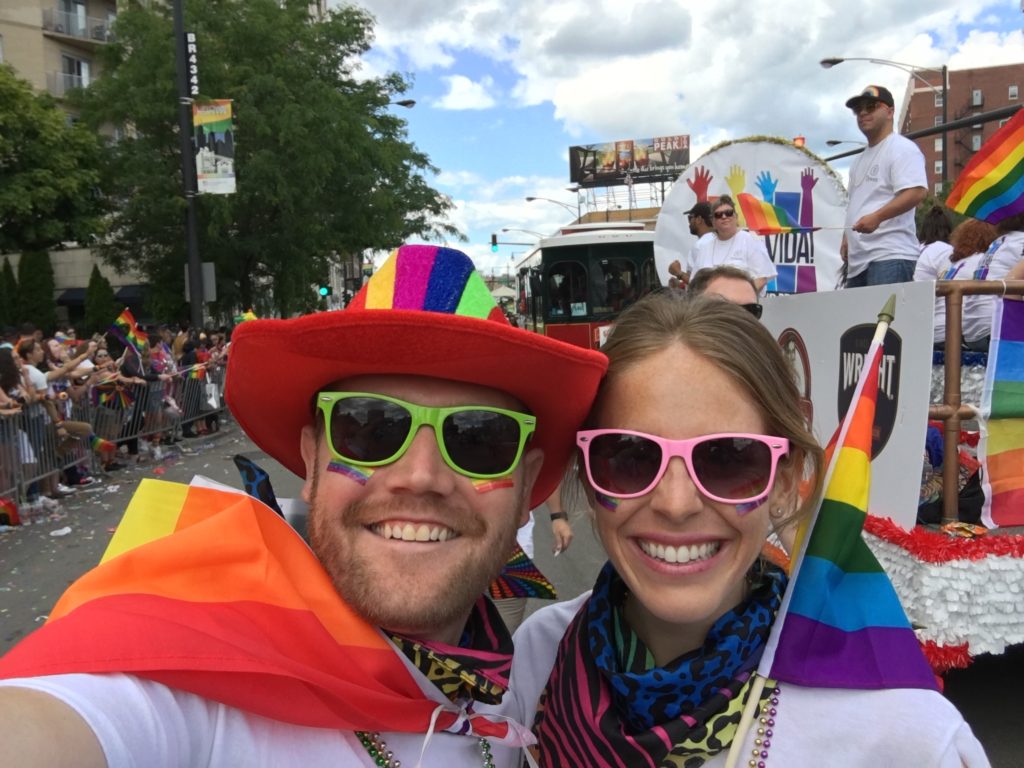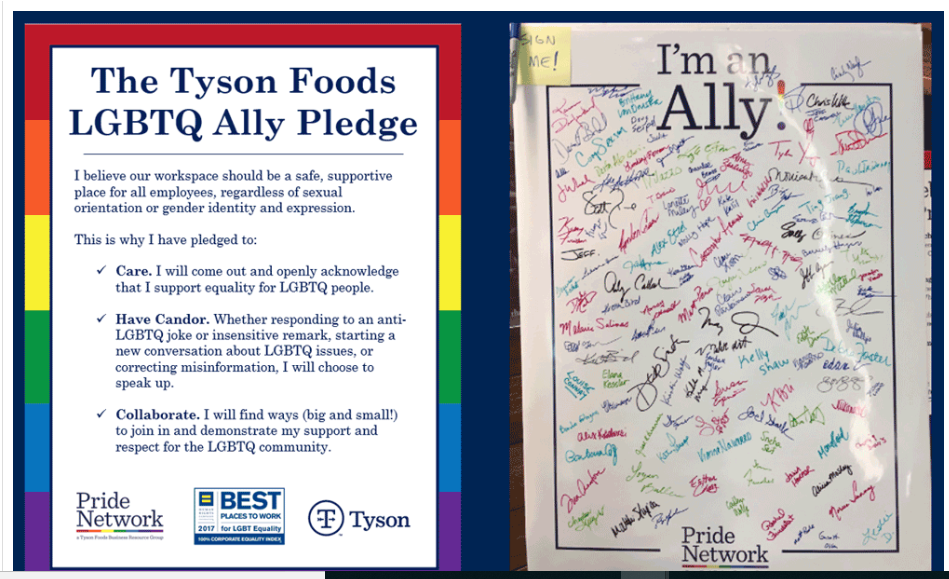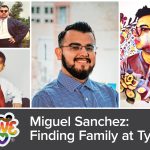“I’m confused.”
When I was in high school, my best friend told me he thought he might be gay. He didn’t say it with confidence. Thought. Might. It wasn’t that he didn’t know; he was afraid of the implications—the conversations he would have to have, the assumptions people would make, and the fear of being treated differently. Years later–after my friend was comfortable living a happy, healthy life as a proud gay man–my own younger brother called me up and said the same thing:
“I’m confused.”

As an ally to individuals who identify as LGBTQ, one of the most important things to recognize is that sexual orientation and gender identity are rarely black and white (after all, why do you think the symbol for Pride is a rainbow?). Chances are you know lots of people who are openly gay, lesbian, transgender, or non-binary, though you may not have been there for their coming out. And chances are, you also know some people who are struggling to accept their own identity, let alone opening up to others about it.
Coming out takes a tremendous amount of courage, whether for the first time to family or close friends or for the umpteenth time to new acquaintances, coworkers or complete strangers. And the fact of the matter is, that while the world today is dramatically more progressive than it was during the Stonewall Riots of 1969, simply identifying as LGBTQ does still come with consequences that my friend, my brother and more than 11 million adults in the U.S. (and more globally) continue to face today.
So what is an ally?
In the case of the LGBTQ community, an ally is someone who is supportive of those in the LGBTQ community—this includes ‘straight allies,’ which are non-members of the LGBTQ community, and those within the LGBTQ community who support identifications other than their own.
At Tyson, we more broadly define an ally as “someone who supports marginalized and underrepresented groups of people and works in solidarity with oppressed groups in the struggle for justice. Allies understand that is in their own interest to end all forms of oppression.”
To define “ally” more specifically for our LGBTQ team members, consumers, customers and communities, our Pride Network Business Resource Group has created the Tyson Ally Pledge that we encourage all team members to commit to:
“I believe our workspace should be a safe, supportive place for all employees, regardless of sexual orientation or gender identity and expression. This is why I have pledged to (1) Care. I will come out and openly acknowledge that I support equality for LGBTQ people; (2) Have Candor. Whether responding to an anti-LGBTQ joke or insensitive remark, starting a new conversation about LGTBQ issues, or correcting misinformation, I will choose to speak up; and (3) Collaborate. I will find ways (big and small) to join in and demonstrate my support and respect for the LGBTQ community.”
To me, finding an organization that shares my personal values is one of the most important things when it comes to feeling good about the work I do, and I’m happy to work for a company that encourages its employees to bring their authentic selves to work each day, and shows the world it supports the LGBTQ community by attending and even sponsoring Pride events in our campus communities. This will be my third year marching with the Tyson Foods crew in the Chicago Pride Parade.

How can I be a better straight ally?
If you want to be a better ally to your LGBTQ family, friends and coworkers, try doing these things:
- Look: Take a look around and ask who you surround yourself with. Are they just like you and with similar points of view? Or do you actively seek out and create space for others who are different? Simply being aware of and open to the fact that those around you may identify as LGBTQ is a critical first step in being a better ally.
- Listen: Dealing with discrimination can be exhausting, irritating and scary. It’s important to validate thoughts, feelings and experiences and to simply listen and seek to understand when people open up to you. Don’t presume help is needed unless asked, and always assume positive intent.
- Speak: As an ally, you have the power to amplify voices and get messages across to people who may not always be willing to listen. If you hear something discriminatory, threatening or rude–speak up! But remember that it is your job to be supportive in creating space and providing platforms to elevate the messages and share the experiences of the LGBTQ community–not to drown out the voices of LGBTQ individuals.
- Act: Going to demonstrations, marching in parades, signing petitions (like the Tyson Ally Pledge!), supporting campaigns, and modeling behavior can help to create institutional change.
This September, my friend from high school will marry his partner of eight years–and next year, my brother will marry the man he has been with for nearly six years. Both are happy and proud gay men, no longer confused or apologetic about who they are. They are role models to young men and women and I am proud to call myself an ally to them and to countless other friends, family members and Tyson team members.




0 Comments
Leave A Comment